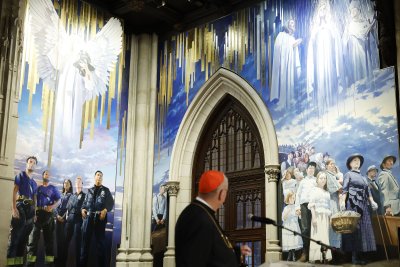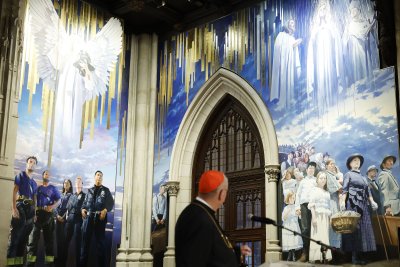
Nov. 13 (UPI) — Less than half of U.S. households place an importance on religion after declining by 17% over the past decade, according to a new Gallup poll.
Two-thirds of U.S. adults surveyed said religion was an important part of their daily life in 2015, Gallup reported Thursday.
That percentage dropped to 49% in 2025, which Gallup said is the largest recorded decrease by any nation since 2007.
“About half of Americans now say religion is not an important part of their daily life,” Gallup reported. “They remain as divided on the question today as they were last year.”
The 17-point drop in the United States over the past decade rarely have exceeded that rate of decline, with Greece posting a 28-point drop in 2023, Italy a 23-point drop in 2022 and Poland a 22-point drop in 2023.
Globally, the median regarding the importance of religion in people’s daily lives has stayed at about 81% since 2007 and was at 83% in 2024, according to Gallup.
Median does not the same as an average, though, and instead represents the middle, with about half being above and about half below the median number.
The decline in the importance of religion in U.S. households remains higher than the median among 38 nations that are members of the Organization for Economic Cooperation and Development.
Those nations posted a combined median of 36% of respective adults affirming that religion is an important part of their daily lives.
As the U.S. percentage drops, it more closely aligns with the OECD median for its member states.
Gallup said the gap is the narrowest ever between the United States and 37 other OCED nations.
The polling firm also identified four patterns for religious importance in the OCED states.
Nations that identify as being Christian generally place a high importance on religion, as do nations with a Muslim majority.
Christian-identifying nations also might have citizens who place a low importance on religion in their daily lives, while nations with no religious identity mostly place only a low amount of importance on religion in their daily lives.
Muslim-majority nations, though, do not share the same dichotomy as Christian-identifying nations.
Gallup said the United States no longer matches those four patterns and instead has medium-high Christian identity and “middling religiosity.”
The percentage of U.S. citizens who identify as Christian is similar to the percentages in Western and Northern European nations, but religion holds greater importance among Americans than it does among their European counterparts, according to the polling firm.
